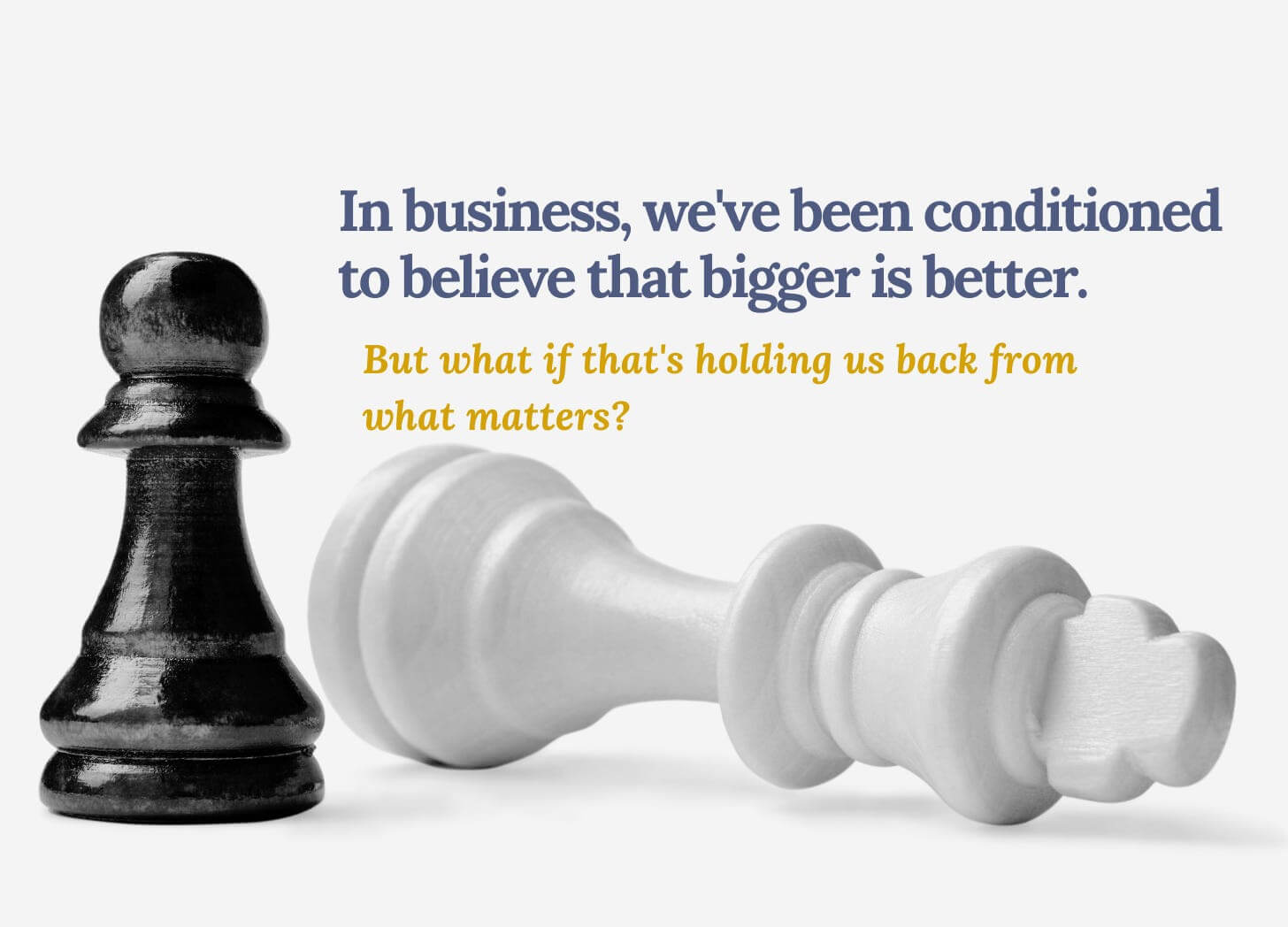In every company I have ever worked for, growth has been the ultimate goal. It’s the metric by which success is measured and the yardstick by which companies compare themselves to others. It seems like we’ve been conditioned to believe that bigger is better, that scaling up is the only way to win. But what if the pursuit of growth at all costs is actually holding us back from creating the kind of businesses we truly want to lead?
Let’s be clear: growth isn’t inherently bad. There are times when expanding your team, your customer base, or your revenue is absolutely the right move. But too often, I think companies pursue growth simply because it’s what everyone else is doing. We get caught up in the feeling that if we’re not constantly striving for more, we’re somehow falling behind.
Thanks for reading Glass Ball Consulting! Subscribe for free to receive new posts and support my work.Subscribe
But here’s the thing: growth comes with a price. And I’m not just talking about the financial costs of scaling up, although those can be significant. I’m talking about the human costs – the toll that unchecked growth can take on your team, your culture, and your own well-being as a leader.
When we’re so focused on growth, it’s easy to lose sight of what really matters. We might start to prioritize hitting targets over taking care of our people. We may go after short-term gains rather than focus on the long-term health of the business. We sacrifice our values and our mission in the name of expansion.
And let’s not forget about the operational challenges that come with growth. The more you scale, the more complex your business becomes. Processes that worked when you were a team of five suddenly break down when you’re a team of fifty. Communication becomes more difficult, silos start to form, and before you know it, you’ve lost the agility and adaptability that made you successful in the first place.
But perhaps the biggest problem with the growth-at-all-costs mentality is that it can blind us to alternative paths. What about the benefits of staying small?
Imagine a company that’s content with its current size, one that doesn’t feel the need to constantly chase growth. Instead, it focuses on being profitable and sustainable for the long haul. This company pours its resources into its team and its culture, creating an environment where people actually enjoy coming to work.
Sure, this kind of business might not grab headlines or attract big-time investors, but that’s not what it’s after. It measures achievement differently – not by how many employees it has or how much market share it controls, but by the positive impact it makes on its customers and the community it serves.
When you’re not constantly striving for growth, you have the freedom to focus on other versions of success. You can build a close-knit team of engaged, loyal employees who are invested in your mission. You can make decisions based on your values rather than your bottom line. You can create a business that supports your lifestyle and your goals, rather than consuming your every waking moment. And maybe, just maybe, you can get away from using acronyms like KPIs and OKRs and talk in human terms.
So, how do you know when growth is the right move for your business? It starts with getting honest with yourself. What kind of leader do you want to be? What kind of culture do you want to create? What does success look like to you, beyond just the numbers?
Once you have clarity on those questions, you can start to develop a growth strategy that aligns with your vision. That might mean setting realistic, achievable targets rather than chasing vanity metrics. It might mean investing in your team and your processes to ensure that you can scale at your own pace. It might mean being willing to say no to opportunities that don’t fit with your values or your long-term goals.
The key is to approach growth with intention and care. Don’t just grow for growth’s sake, but be thoughtful about when and how you scale. Communicate openly with your team about the challenges and opportunities that come with expansion.
At the end of the day, the path you choose for your business is up to you. But I encourage business leaders to challenge the assumption that growth is always the answer. Take the time to reflect on what truly matters to you as a leader, and have the courage to build a business that aligns with that.
Because when we let go of the pressure to constantly strive for more, we open ourselves up to a whole new world of possibility. We can still create businesses that are fulfilling and deeply impactful, even if it’s on a smaller scale.


